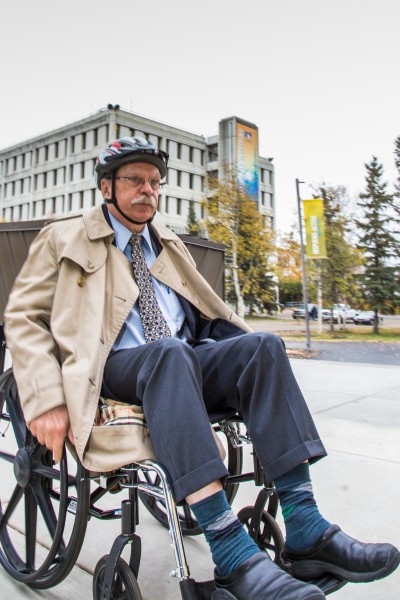Chancellor launches Disability Committee
February 13, 2014

Over the next 18 months, a UAF committee is expected to recommend actions to help enhance the educational and work experience for people with disabilities.
The nine member-committee, which met for the first time on Feb. 4, was appointed by UAF Chancellor Brian Rogers. The group consists of representatives from the Fairbanks community, faculty, staff, students, alumni and veterans.
The members bring a range of knowledge, experience and sensitivity to a broad spectrum of disabilities involving, for example, blindness/low vision, deafness/hearing difficulty, communication barriers, dexterity/mobility limitations and cognitive constraints.
Pete Pinney, interim vice chancellor for rural, community and Native education, serves as chairman. Pinney was one of the vice chancellors who participated in a disability awareness exercise with the chancellor last fall. He experienced firsthand the challenges presented to people with macular degeneration by wearing goggles to simulate the visual impairment.
In the past few years, UAF has focused on making our campus more accessible for people with disabilities. An accessibility study of buildings was completed; all outside sidewalks have been surveyed for compliance with standards; Facilities Services hired two additional workers to clear ramps for individuals using chairs; and the chancellor’s residence has been upgraded so individuals with mobility issues can attend gatherings.
The disability committee ultimately will recommend strategies to the chancellor to improve accessibility, increase enrollment, expand employment and enhance retention for people with disabilities at UAF. These recommendations can include steps to debunk myths, increase awareness, remove barriers and help make UAF a more welcoming campus for all.
If you have ideas or suggestions that would assist the committee with its task or improve the UAF experience for individuals with disabilities, email Pete Pinney at pppinney@alaska.edu or Mae Marsh at mmarsh36@alaska.edu with your recommendations.


